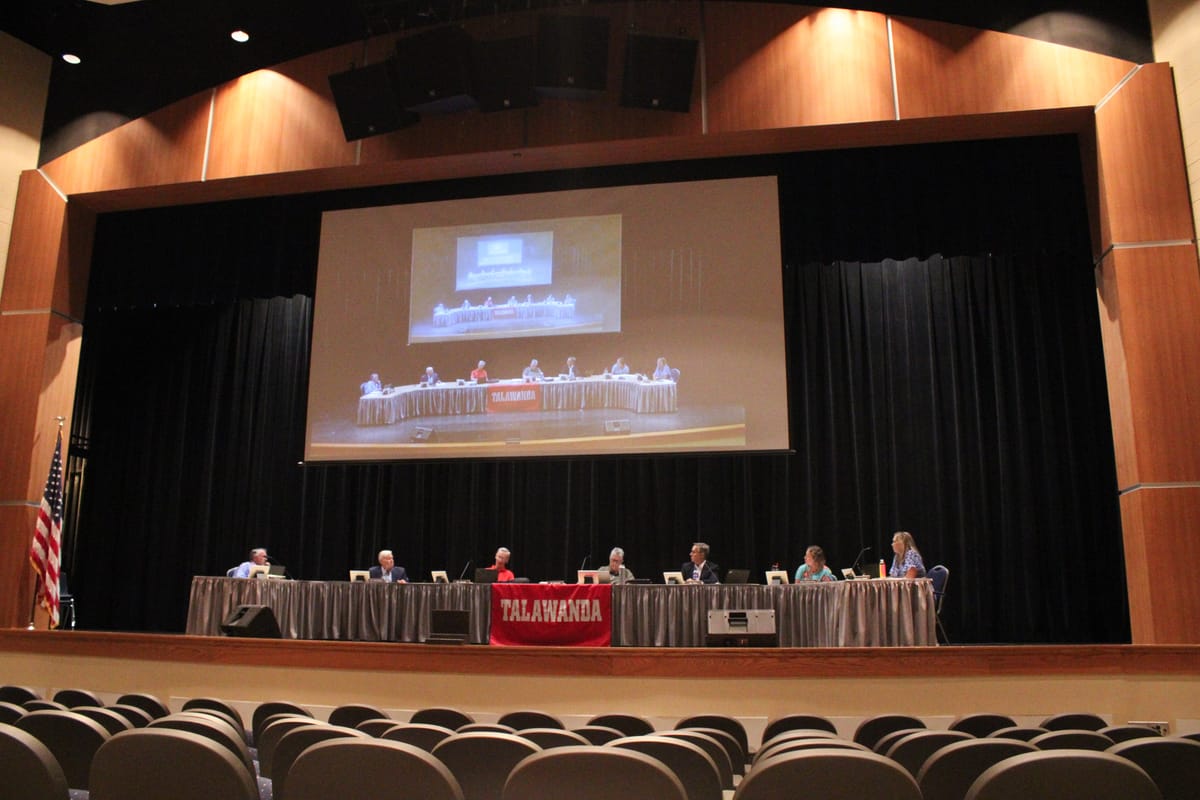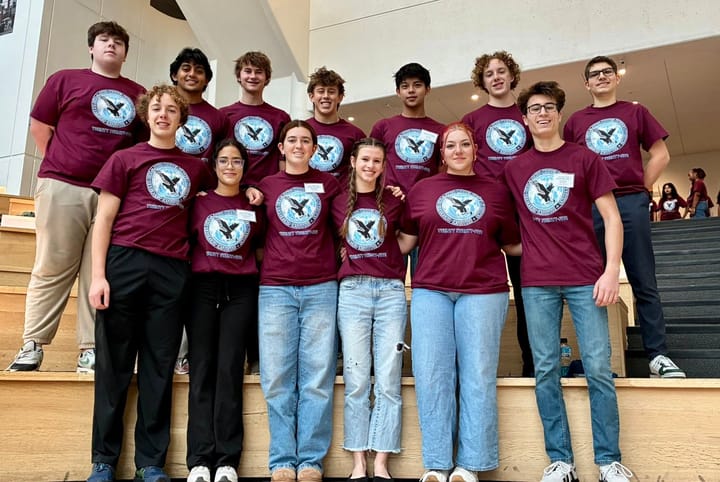Talawanda BOE discusses new policies, the budget, IT
The school district is expecting several changes as a result of the recent passage of the state budget, among other legislation.

The Talawanda Board of Education discussed budget uncertainties, the cell phone ban, religious instruction time and a new IT position during its monthly meeting Tuesday.
Budgetary concerns
As H.B. 96, the state budget bill, was passed in June, the board began its meeting by talking about a series of budgetary concerns, which have been discussed over the past several months.
For example, there was concern that one line item in the budget may have affected the 20 mill floor, which allows the school district to collect on a minimum amount of property taxes, Treasurer Shaunna Tafelski said in an email to the Oxford Free Press.
If this occurred, Tafelski said Talawanda schools could lose $2.5 million, or over 6% of its forecasted Fiscal Year 2026 budget, and $2.2 million, or 100% of its Permanent Improvement, or capital, fund.
Although this line item was vetoed, Tafelski said there’s still concern because the veto may be overruled until Dec. 31, 2026.
Tafelski said H.B. 335, although tabled, is also concerning, as it includes restrictions on inside millage for school districts.
The budget bill also eliminated the ability of school districts in Ohio to impose replacement property tax levies, emergency levies, combined school district income tax and fixed-sum property tax levies. Although Gov. Mike DeWine vetoed this item, the House of Representatives voted to overrule it.
Tafelski said the district currently doesn’t have any emergency levies, although this would limit its ability to ask for them in the future.
Although recently ruled unconstitutional, Board Member Matt Wyatt also spoke at length about EdChoice, the state’s voucher program, being a concern for public schools that rely on tax funding.
Tafelski said in the email about the concerns overall, “It is very clear that Ohio legislation is targeting school districts, wanting to eliminate property taxes and reduce the number of options for us to levy money from our community members.”
“With each biennium budget that is signed into law, the less support public schools are receiving to educate our children, shifting the burden from the state to the local communities yet, they are stripping our levy avenue and resources to receive that community support,” Tafelski said.
Cell phone ban
During Superintendent Ed Theroux’s updates, he discussed the change of school policy in regards to the budget bill signed by DeWine. This bill prohibits the use of cell phones in schools other than for instruction and requires school districts to adopt a policy by Jan. 1, 2026.
According to Theroux, the district’s current policy is actively being “tweaked” through a partnership with Neola, although procedures have been put in place for the start of the school year.
Theroux said the district is encouraging students to leave all cell phones, smart watches and other communications devices at home. If they are brought to school, the district recommends leaving them in lockers, cubby holes or backpacks and turning them off.
If a student has a communication device on them while in class and it makes noise or is used during the school day during instructional time, lunch, recess or in the hallways, there will be consequences. First, Theroux said a warning will be issued, and then the device will be confiscated.
Theroux said there will be exceptions for students with medical needs, and the schools will provide access to communication if there are safety issues. Otherwise, he said parents and guardians are encouraged to communicate with their children by calling the main office.
Release for religious instruction
Theroux also talked about the ability of students to be released during the school day for religious instruction.
Ohio House Bill 8, or “The Parents’ Bill of Rights,” was signed into law earlier this year and allows students to be signed out during the school day by a religious organization, among other changes.
Theroux said the policy put in place by the Talawanda School District allows for students with parent consent to leave the building one day a week during non-core subjects, which he said include English language arts, math, science, social studies, history, electives, intervention, music, art and physical education.
Theroux said he has already been approached by an institute that wants to offer religious instruction, starting at Bogan and Kramer elementary schools. He said it would be given 40 minutes between lunch and recess to sign the child out and provide them with transportation, returning them on time for class.
As a result, the school would not be providing lunch during that time, Theroux said, and liability would be on the entity who has obtained the parents’ consent. He said students may also not bring back items from their religious instruction time.
Wyatt said during the meeting he has “problems” with the policy change, including mixing religion and public education.
IT position
The board voted to approve an IT Assistant Director position that was previously voted down amid budget concerns.
According to the meeting’s agenda, the assistant director will focus on cyber security, school management, vulnerability reports and with IT staff on 1:1 devices, like computers and phones.
“There’s a huge increase [in] cybersecurity issues, internet issues,” Theroux said. “While we have staff, we are struggling to keep up with that, but we also understand the monetary component of it.”
Administrator on leave
In other business, a new central office administrator has been placed on unpaid leave by the Talawanda School District, “following the receipt of new information,” according to an announcement on the district’s website Tuesday evening.
“This decision was made to allow the organization to review the matter thoroughly, ensure that requirements for employment have been met based on new information, and ensure that all actions align with Talawanda’s commitment to transparency, integrity, and the best interests of TSD students and the community,” the district said in the announcement.
The district cannot provide any other information about the situation at this time, as it involves personnel.




